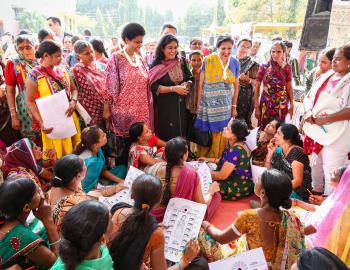REPORT: Shedding light on causal recipes for development research uptake
REPORT: Shedding light on causal recipes for development research uptake
Learning from CDKN's experience
For years, the international development sector has grappled with questions of how to rigorously assess and understand contribution to impact and how to navigate complex causalities that make up the road to success. Randomised Control Trials (RCTs) and other econometric approaches are frequently mentioned as an option, alongside more case-based and context-focussed methods such as Process Tracing. Qualitative Comparative Analysis (QCA) has arrived recently on this scene, from the social sciences. QCA is an analytical approach that combines deep contextual case knowledge with the ability to identify patterns across a number of cases – making it possible to examine different ‘combinations’ of causes leading to an outcome.
While at a first glance QCA holds enormous promise for unpacking contribution to achieving development outcomes in complex contexts, its practical application in monitoring, evaluation and impact assessment in international development has not been widely demonstrated to date.
This paper explores the use of QCA for learning-focussed monitoring and evaluation (M&E), using recent work with the Climate and Development Knowledge Network (CDKN) as a case study. It is aimed at experienced monitoring and evaluation (M&E) practitioners interested in a more detailed understanding of the potential application of QCA. A secondary audience is researchers interested in the results of the QCA analysis of factors influencing the uptake of research in Climate Compatible Development (CCD) policy and practice.



